Why Breakfast Is The Most Important Meal Of The Day

We’re all told about how important breakfast is and most of us accept it without asking why, but a Cardiff University study has found that a healthy start to the day can actually help you perform better in tests[i].
The study involved 5,000 children across 100 schools with researchers discovering that eating breakfast could double a student’s chance of getting above average results compared to a child going to school on an empty stomach.
Anecdotally, teachers also agree that eating first thing can help improve pupils’ attention and concentration and children who don’t eat in the morning usually end up flagging by mid-morning (with some even falling asleep).
But it’s not just about eating, the Cardiff University team also found that what the children ate was just as important and the boost in results only applied to children who ate healthily. So, while eating sweets or bags of crisps might fill you up temporarily, researchers found that these types of foods did nothing to improve academic performance – but what counts as a ‘healthy’ breakfast?
Slow release foods
Slow release foods keep us feeling fuller for longer which is a good thing because it means we’re less likely to reach for that chocolate biscuit or packet of crisps or be distracted by our rumbling tummies.
A good breakfast (like most meals) should be low in added salt, sugar and fat. It’s also a good idea to choose foods that are as unprocessed as possible so they’re easily digested. Some recommended breakfast foods include:
- Low fat, salt and sugar cereals like shredded wheat, or wholewheat biscuits
- Porridge oats with stewed, cooked or fresh fruit for sweetness
- Beans on toast
- Scrambled eggs with or without wholemeal toast
- Low fat yoghurt with fruit and nuts
A good start to the day
Breakfast doesn’t just give you fuel to kick-start your morning, it offers you a chance to prepare yourself for the day – giving you an opportunity to sit down with your family before school begins.
If you’re not used to eating first thing, try making your own smoothie and blitz a banana with berries, yoghurt and a little fresh fruit juice – or, experiment with whatever fruit you have at home to find a combination you like. You can even make your smoothie to go if you’re in a rush or don’t feel like eating when you first wake up. Alternatively, pack yourself a piece of fruit with yoghurt and oats for a healthy, low fat, low sugar breakfast.
For more information about how to eat a healthy and balanced diet, head to the NHS eatwell guide which offers advice about the type of foods we should be eating. Remember – it’s not about banning ‘bad’ food like chocolate, sweets and fizzy drink, but about making informed choices and enjoying all types of food in moderation.
For more information please call 07747 037441 or click here apply online.
[i] Littlecott, H., Moore, G., Moore, L., Lyons, R., & Murphy, S. (2016). Association between breakfast consumption and educational outcomes in 9–11-year-old children. Public Health Nutrition, 19(9), 1575-1582. doi:10.1017/S1368980015002669
Last Updated on November 5, 2020
